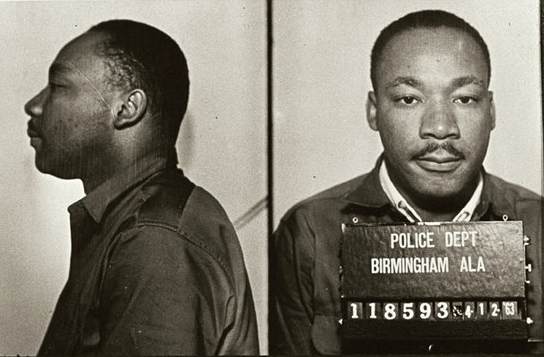
Message for Reformation Sunday, Year B (10/27/2024)
Psalm 46 & John 8:31-36
It’s easy to celebrate reformation in retrospect. Once the political risk was mitigated, once Lutheran Christianity took root in northern Europe and spread around the world, once Lutherans learned to coexist with Christians of other stripes, what more was there to do than applaud the courage and faithfulness of the Reformers and bask in the glow of our theological heritage? So once a year we dress in red, sing “A Mighty Fortress,” and cling to grace above all else.
Well and good. But if Reformation Sunday is mostly about the events of sixteenth-century Europe, then we’ve already missed the point. The hazard of enshrining reformation in a previous era is to neglect it in our own. Isn’t it ironic that a movement defined by renewal is at risk of getting stuck in the past?
It’s easy to celebrate reformation in retrospect, but it’s much harder to practice it in the present. At its core, reformation means that God is continually at work to re-form, that is, to reshape, the church for the sake of the truth that sets us free. Ecclesia reformata semper reformanda– the reformed church is always being reformed. In other words, we’re always being called to something new, not for novelty’s sake, but that God’s kingdom continue to come, God’s will continue to be done on Earth as in heaven.
That is not to say we necessarily edge closer to glory each Reformation Sunday. It’s tempting to assume that the work of God’s justice and peace is linear, that every generation comes closer than the last to realizing God’s dream for the world. But when we look upon history with clear eyes, we see that advancements are predictably met with backlash, that triumphs are too often diminished by tragedies. The Rev. Dr. Martin Luther King, Jr., a reformer in his own right, knew as well as anyone that there are no guarantees when it comes to progress:
It is [a] strangely irrational notion that there is something in the very flow of time that will inevitably cure all ills. Actually time is neutral. It can be used either destructively or constructively…. We must come to see that human progress never rolls in on wheels of inevitability. It comes through the tireless efforts and persistent work of [people] willing to be co-workers with God, and without this hard word time itself becomes an ally of the forces of social stagnation. We must use time creatively, and forever realize that the time is always ripe to do right.[1]
In other words, Reformation Sunday is an occasion not only to look back, but also to look around. Since the work of God’s reign is fluid, contextual, ever new, we are always in a position to discern where God is calling us to meet the challenges of our day with faith, hope, and love.
And I wish I could promise success, but I can’t. We have the benefit of hindsight, but bear in mind that success wasn’t a given for the sixteenth-century Reformers. Martin Luther was excommunicated from the church and branded an outlaw following his refusal to recant his position at the Diet of Worms in 1521. Hiding out at Wartburg Castle later that winter, he must have wondered what would become of his movement. There was no guarantee at the time that Lutheranism would survive a reactionary onslaught by the church; there was no guarantee that Luther’s risk would pay off.
Neither are we assured of favorable outcomes in the short term. In fact, we may experience deep disappointment, even despair, when we pursue meaningful change. From our perspective, there may be precious little evidence that the truth is setting anyone free; despite our efforts, justice and peace may appear farther away than ever.
But lest we lose hope, friends, remember that reformation is ultimately the work of God’s Spirit on behalf of the world God loves. We may not perceive the new thing that God is doing in our midst, but that doesn’t mean it’s not happening or that we’re not involved. Practicing a reforming faith means taking risks for the sake of love, and trusting God with the results.
Hear how Luther himself encourages us in that direction:
[Excerpt from Day by Day We Magnify You, p.123]
[1] “Letter from Birmingham City Jail,” A Testament of Hope, 296.
Liturgy © 2022 Augsburg Fortress. All rights reserved. Used by permission under OneLicense # A-706920.
Liturgy © True Vine Music (TrueVinemusic.com). All rights reserved. Used by permission under CCLI license #11177466.
Praise the One Who Breaks the Darkness Arranged by James H. Laster Text by Rusty Edwards Copyright 2001 Concordia Publishing House
“A Mighty Fortress Is Our God”; text: Martin Luther, 1483-1546; tr. Lutheran Book of Worship; music: Martin Luther, 1483-1546; text © 1978 Lutheran Book of Worship, admin. Augsburg Fortress. All rights reserved. Used by permission under OneLicense # A-706920.
Founded on Faith; Text and music © 2017 Paul D. Weber, admin. Augsburg Fortress; Used by permission under OneLicense # A-706920.
“Now We Join in Celebration”; text: Joel W. Lundeen, 1918-1990; music: Johann Crüger, 1598-1662; text © Joel W. Lundeen, admin. Augsburg Fortress. All rights reserved. Used by permission under OneLicense # A-706920.
“Rise, Shine, You People!” text: Ronald A. Klug, b. 1939, alt.; music: Dale Wood, 1934-2003; text and music © 1974 Augsburg Publishing House. All rights reserved. Used by permission under OneLicense # A-706920.

